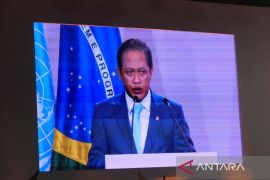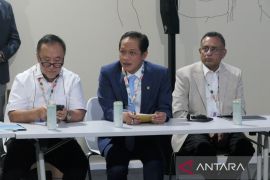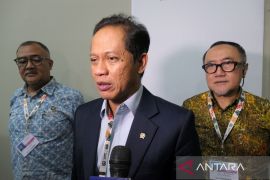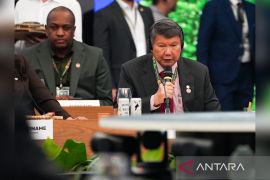If it were to happen, it would pose a hindrance to realizing the Indonesian dream in 2045,Jakarta (ANTARA) - Indonesia will create a long-term strategy (LST) to implement the Paris Agreement in line with the Indonesia 2045 Vision, the Nationally Determined Contribution (NDC), and other low-emission policies, according to an official.
The low-emission development program was vital though implementing it would be a challenge, Ruandha Agung Sugardiman, director general for climate change mitigation of the Environmental Affairs and Forestry Ministry, remarked here, Monday, during a 2050 Pathways workshop themed "Vision 2050: Indonesia and the Long-term Objective of the Paris Agreement."
The National Development Planning Board (Bappenas) has devised a low-carbon development initiative in the Indonesian 2045 Vision in connection with a century of Indonesia.
Indonesia has submitted its first NDC document to the UNFCCC Secretariat in 2016. The government is presently readying a policy for bolstering its legal basis, he remarked.
Executive Director of the 2050 Pathways Platform Richard Baron confirmed that 21 state parties had put forth their long-term strategies for the Paris Agreement to the UNFCCC Secretariat. Baron is upbeat that Indonesia too would follow suit.
Low-emission LST is projected to facilitate countries in implementing the Paris Agreement. In the event of the agreement failing, the climate change risk would be higher, he cautioned.
The Vision 2045 is a major challenge, as it sets going a low-carbon development program in the National Mid-Term Development Plan (RPJMN) 2020-2024.
All development stakeholders should give serious consideration to the issue of climate change for realizing the Vision 2045, he stated.
Climate change will have wide-ranging repercussions on agriculture, water balance, fishermen, health, and aviation safety, as well as increase the intensity of natural disasters, such as landslides.
"If it were to happen, it would pose a hindrance to realizing the Indonesian dream in 2045," he pointed out.
The Paris Accord is an ambitious international deal inked in 2016 within the United Nations Framework Convention on Climate Change (UNFCCC) aims at limiting global warming through mitigating to lower greenhouse gas emissions, adaptation, and finance.
With 196 parties, as of Mar 2019, the UNFCCC members has near universal membership, and 185 have become party to it.
The Paris Agreement's long-standing objective is keeping the global temperature rise this century under two degrees Celsius above pre-industrial levels and to pursue efforts to limit the temperature rise even further to 1.5 degrees Celsius, as it will considerably lower the risks and effects of climate change.
Translator: Fardah Assegaf
Editor: Suharto
Copyright © ANTARA 2019










